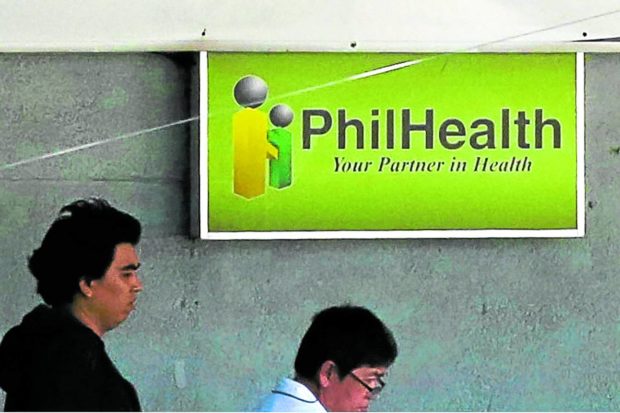Filipinos shoulder up to 44.7% of medical costs even with PhilHealth

INQUIRER FILE PHOTO
MANILA, Philippines — Filipinos still shoulder out-of-pocket expenditures ranging from 34 to 44.7 percent, according to the Philippine Health Insurance Corp. (PhilHealth).
Out-of-pocket expenditures are expenses paid by an individual not covered by the health insurance, in this case, PhilHealth.
PhilHealth officer-in-charge Eli Dino Santos shared the information on Wednesday during a briefing with the Senate Committee on Government Corporations and Public Enterprises.
“Based on our records, in a study conducted in 2019, the out-of-pocket percentage is 34 percent, meaning for every P1 spending, the out-of-pocket is 34 centavos,” Santos said, referring to a study conducted by PhilHealth itself.
“There’s also a report from the PSA-Philippine National Health Accounts, our out-of-pocket is still at 44.7 percent based on our current health expenditure,” he explained, referring to the Philippine Statistics Authority.
Article continues after this advertisementSantos said this after Sen. Joel Villanueva questioned if the figure had improved since the World Health Organization’s global health expenditure report, which showed that the out-of-pocket expenditure in the country was at 48.56 percent.
Article continues after this advertisement“I hope we have mechanisms and steps are being taken to address these high out-of-pocket expenses and to lower [it] within acceptable limits,” Villanueva said.
In the same briefing, Sen. Alan Peter Cayetano said the government should help PhilHealth in providing universal health care coverage to all Filipinos.
He proposed that Senate look into the revenue generated by excise taxation and use it to assist PhilHealth.
“It cannot be that Filipinos have no place to go — whether it’s a health center, a private or public clinic. What gives them courage will be their PhilHealth membership,” Cayetano said, speaking in a mix of English and Filipino,
He questioned how many Filipinos were really members of PhilHealth, after citing an OCTA Research survey that showed 57 percent of Filipinos said they were either lapsed members or not members of PhilHealth.
But Santos acknowledged said that, under the Universal Healthcare Law, all Filipinos were automatically part of PhilHealth, including those working abroad.
In terms of registered members, however, Santos said that only 90 percent of Filipinos were registered with PhilHealth.
“That means 101.5 million Filipinos are registered,” Santos said. “Although we have this automatic or immediate eligibility, what Philhealth requires is registration. We request our fellow Filipinos to register with PhilHealth, because at present our registration is still at 90 percent, meaning there are about 10 to 12 million Filipinos who are not registered,” said Santos.
PhilHealth COO Walter Bacareza, for his part, vowed that PhilHealth would intensify its education campaign to inform Filipinos that under the Universal Healthcare law, all Filipinos are automatically part of PhilHealth.
RELATED STORIES
DOH proposed 2023 budget increases, but funds for PHC, NKTI, other items slashed
Healthcare aid payout via PhilHealth or hospitals? Lawmakers’ ideas clash
PhilHealth continues COVID testing coverage for returning OFWs